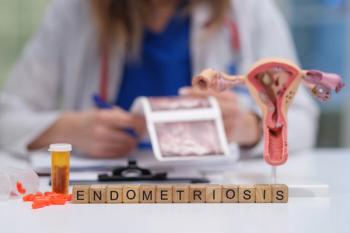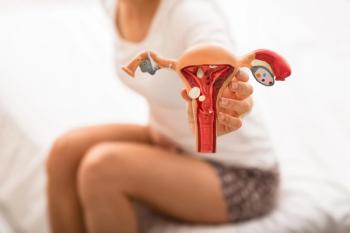
How endometriosis impacts life-course potential
The life impact of endometriosis is similar to other chronic disorders, especially for pain, according to a narrative literature review in the International Journal of Internal Medicine.
“We are well aware that endometriosis patients present with life-altering symptoms that many have suffered from for multiple years,” said lead author Stacey Missmer, ScD, a professor of ob-gyn and reproductive biology at Michigan State University in Grand Rapids, MI. “However, the impact of these symptoms and the factors that influence treatment decisions change over a lifetime.”
Missmer said current studies typically only focus on a small period in time. “Our goal was to describe what has been reported about the effect of endometriosis at different time periods and also the potential accumulation of impairment,” Missmer told Contemporary OB/GYN®.
The authors—who performed a search of the MEDLINE database—found that over the course of a lifetime, a patient’s trajectory can be significantly altered, such as pursuing or completing education; career choices or advancing in a chosen career; forming stable, fulfilling relationships; and starting a family.
Among the potential factors mediating the influence of endometriosis on life course at the individual level are: age at symptom onset and eventual diagnosis; delay in diagnosis; social/family/spousal support; psychological factors like early traumatic exposures, stress, anxiety and depression; severity, frequency and predictability of pain; opioid use; and fertility.
“We were not surprised by the literature that was uncovered in this narrative review,” said Missmer, scientific director at Boston Center for Endometriosis in Boston, Massachusetts. “An important takeaway, though, is that despite the prevalence and impact of chronic pain and other symptoms associated with endometriosis, there have not been many studies of life impairment, and those that exist often have small sample sizes and are restricted to a short time period.”
Missmer said gynecologists need to be aware and address directly with their patients the fact that the accumulation of impairment with endometriosis is comparable to other chronic disorders, particularly for pain.
“It’s recognized that patients with endometriosis can experience debilitating pelvic pain; however, the influence that it has on their quality of life, life goals, and achievements is not adequately addressed in the clinical setting,” Missmer said. “Furthermore, this impact and its effect on life goals should be expected to vary, depending on the age and immediate needs of individual patients.”
Evaluating and managing patients with endometriosis should include a comprehensive assessment of pain and its impact on function, personal relationships and life satisfaction, according to senior author Sawsan As-Sanie, MD, MPH, an associate professor of ob-gyn at the University of Michigan in Ann Arbor, MI. “Understanding a patient’s individual goals at that time in their life should be a focus of each visit and integral to shared decision-making in treatment selection,” she said.
As-Sanie noted that current practice models often result in a prolonged delay between symptom onset, diagnosis, and treatment of endometriosis. “Healthcare delivery models that are most likely to achieve success incorporate not only gynecologists, but a range of complementary expertise, including primary care physicians, psychologists, nurses, pediatricians, and adolescent medicine specialists, all working and communicating together effectively,” As-Sanie told Contemporary OB/GYN®.
Future studies need to evaluate interventions at early time periods and prospectively study their benefit to minimize the cumulative effects of inadequately treated chronic pain, according to the authors.
Reference
- Missmer, SA, Tu FF, Agarwal SK, et al. Impact of endometriosis on life-course potential: a narrative review. Int J Gen Med. 2021;14: 9–25. doi:10.2147/IJGM.S261139
Newsletter
Get the latest clinical updates, case studies, and expert commentary in obstetric and gynecologic care. Sign up now to stay informed.









